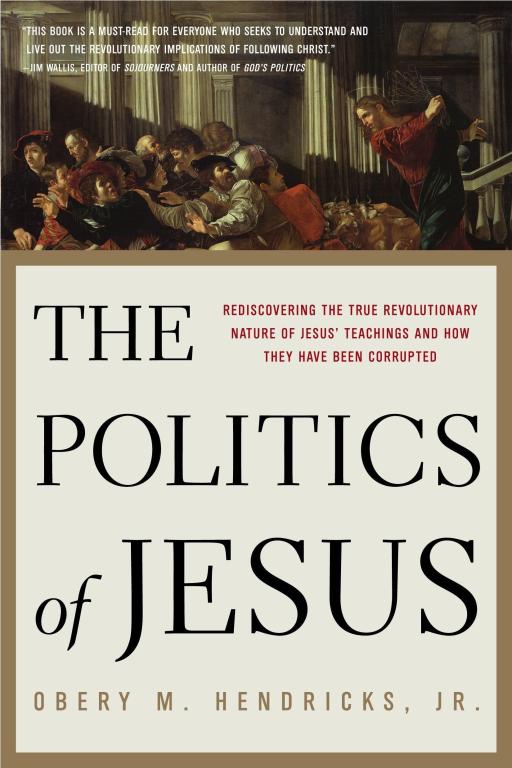The evangelical left is getting gray hair. Its civil rights activists (John Perkins and John Alexander), antiwar activists (Jim Wallis), feminist activists (Sharon Gallagher), politicians (Mark Hatfield), simple living advocates (Ron Sider), and chefs (Doris Longacre) are aging and beginning to leave us.
The key texts and events of the movement are a bit younger than the people behind them. The 1973 Chicago Declaration, the manifesto that truly launched the movement and that serves as an important narrative device in my book Moral Minority: The Evangelical Left in an Age of Conservatism, is turning fifty next year. Over the next year, I plan more posts leading up to that momentous date in the history of evangelical politics.
 The first in this series deals with The Politics of Jesus (1972), which celebrates (or suffers?) its fiftieth anniversary this year. I’ve not seen this anniversary mentioned anywhere yet—and for good reason: John Howard Yoder was an abuser. It’s a terrible irony that the author of a book that propounded peace could be so violent. I’ll get to that later in the post, but first a short description of the book itself.
The first in this series deals with The Politics of Jesus (1972), which celebrates (or suffers?) its fiftieth anniversary this year. I’ve not seen this anniversary mentioned anywhere yet—and for good reason: John Howard Yoder was an abuser. It’s a terrible irony that the author of a book that propounded peace could be so violent. I’ll get to that later in the post, but first a short description of the book itself.
Yoder’s magnum opus was an exegesis of several New Testament gospels that sought to refute Reinhold Niebuhr’s Christian realism and just war theory. Critiquing the Constantinian merging of church and state, Yoder argued against the Christian coercion of society. The state, to which Christians do not owe a reflexive obedience, is inherently corrupt, Yoder maintained, and entanglement in the state is fraught with danger and compromise. Jesus’ greatest temptation was to wield political power, or as Yoder provocatively suggested at a conference at Calvin College, to become a Calvinist.
Instead, Jesus ultimately worked toward the visible restructuring of social relations within the Church. This example, which ought to be central to Christian social ethics, suggested that suffering and peace were normative practices. This was not to say, Yoder was quick to point out in Politics of Jesus, that the Church had no social or political responsibilities. Rather Christians, in forming countercultural communities that fed the hungry, cared for the sick, and spoke prophetically to positions of power on behalf of the oppressed, could serve as a social model to the world. Servanthood, grassroots action, and persuasion, rather than coercion, ought to characterize Christian politics.
 As an example of strategy of moral suasion, Yoder often cited his involvement with an ecumenical group of Christians who were trying to ameliorate racial segregation in Evanston, Illinois, during the 1960s. Most in the group found it self-evident that the ministers in the community ought to persuade the mayor and city council to adopt open housing policies. This would be the church discharging her social responsibility. But the conversation fell into disarray when someone pointed out that most of the real estate dealers and sellers of houses were members of the very Protestant churches that the ministers led.
As an example of strategy of moral suasion, Yoder often cited his involvement with an ecumenical group of Christians who were trying to ameliorate racial segregation in Evanston, Illinois, during the 1960s. Most in the group found it self-evident that the ministers in the community ought to persuade the mayor and city council to adopt open housing policies. This would be the church discharging her social responsibility. But the conversation fell into disarray when someone pointed out that most of the real estate dealers and sellers of houses were members of the very Protestant churches that the ministers led.
The problem, reported Yoder, was that the typical minister seemed “powerless to get his own members to take Christian ethics seriously without the coercion of government to get ‘the church’ as membership involved in lay professions to be less unchristian.” More effort ought to be dedicated to discipleship at the church level, he suggested. Why should Christians expect other forces in society to be more effective and insightful than the “body of believers in their structured life together?” The primary social structure through which the gospel works to change other social structures, wrote Yoder, “is that of the Christian community.”
 To many mainstream and Reformed evangelicals, Anabaptist politics seemed naïve, otherworldly, and irresponsible. It seemed to fall into Richard Niebuhr’s classification of “Christ against culture.” Gordon-Conwell professor Stephen Mott, troubled by “the most widely read political book in young evangelical circles,” declared that Politics of Jesus “provides comfort and motivation for the increasing number of evangelicals who are rejecting legislative change as a method of social action in favor of the creation of Christian community … and a participation in forms of direct action.” Calvin philosopher Richard Mouw noted that “orthodox Calvinists are afflicted with a ‘Menno-phobia’ of sorts. We want very much not to sound like Anabaptists.”
To many mainstream and Reformed evangelicals, Anabaptist politics seemed naïve, otherworldly, and irresponsible. It seemed to fall into Richard Niebuhr’s classification of “Christ against culture.” Gordon-Conwell professor Stephen Mott, troubled by “the most widely read political book in young evangelical circles,” declared that Politics of Jesus “provides comfort and motivation for the increasing number of evangelicals who are rejecting legislative change as a method of social action in favor of the creation of Christian community … and a participation in forms of direct action.” Calvin philosopher Richard Mouw noted that “orthodox Calvinists are afflicted with a ‘Menno-phobia’ of sorts. We want very much not to sound like Anabaptists.”
Calvin theologian Gordon Spykman explained precisely why Reformed thinkers opposed neo-Anabaptist strategies. He asserted that “God so loved the cosmos that he sent his son to save it. If then God has not turned his back on the world that he made, we have no right to do so either.” God had charged humanity with a cultural mandate to reverse the effects of sin that “distort, corrupt, and pervert” social structures. “Redemption is the restoration of creation.” Consequently, “All of life is religion … No dichotomy between Church and world. No separation of piety and politics.” Promoting a principled Christian realism in the tradition of Augustine, Aquinas, Luther, Calvin, and Reinhold Niebuhr could reform American politics.
 On intellectual and publishing levels, Yoder’s work was a resounding success. The first edition alone sold over 75,000 copies, an impressive number for a dense theological study. It has been translated into ten languages and was named by Christianity Today, not a particularly resonant publication, as the fifth most important book of the twentieth century. It sparked important debates within American religion and made everyone—Calvinists and Mennonites—better thinkers.
On intellectual and publishing levels, Yoder’s work was a resounding success. The first edition alone sold over 75,000 copies, an impressive number for a dense theological study. It has been translated into ten languages and was named by Christianity Today, not a particularly resonant publication, as the fifth most important book of the twentieth century. It sparked important debates within American religion and made everyone—Calvinists and Mennonites—better thinkers.
But not, apparently, better practitioners. On every other level, The Politics of Jesus was a devastating failure. Yoder’s communitarian ethic of peace failed spectacularly in real life as his local congregation, his seminary employer, and his denomination failed to keep Yoder in check. Decades later, an investigation revealed that over 100 women experienced unwanted violations at conferences, classrooms, retreats, homes, apartments, offices, and parking lots. That Yoder himself could violate an ethic of peace is troubling. Even more troubling is that his Mennonite church community, which purported to operate with a more communal ethic than most, could allow this to happen.
As a Mennonite myself, it pains me to ask these hard questions: Do Yoder’s personal failings—and his church’s inability to address them—prove the Calvinists’ point? Is humanity so shot through with sin that Yoder’s ethic isn’t livable in real life? The older I get—and the more depravity I commit and experience—the more I wonder.













